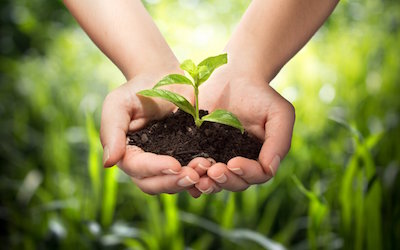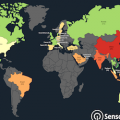PTE考生目前最大的问题之一就是练习题缺乏。除了有限的基本官方书(PLUS,Testbuilder, OG)之外,就没有题了。很多英语基础不是很扎实的同学很难找到练习材料。墨尔本文波雅思PTE培训学校专门为墨尔本,悉尼PTE考生准备了适合PTE听力阅读练习的科学60秒。各位PTE同学可以练习PTE听力中的summarise spoken text和PTE口语中的retell lecture,PTE听力口语-科学60秒-Frosty Moss练习记笔记技巧和复述。废话少说,下面开始:
Implants Could Produce Botanical Steve Austins
听力内容:
60秒科学节目(SSS)是科学美国人网站的一套广播栏目,英文名称:Scientific American – 60 Second Science,节目内容以科学报道为主,节目仅一分钟的时间,主要对当今的科学技术新发展作以简明、通俗的介绍,对于科学的发展如何影响人们的生活环境、健康状况及科学技术,提供了大量简明易懂的阐释。
We have the technology. We have the capability to make the world’s first bionic” plant!
Engineered bionic plants that harvest even more energy from the sun, or detect pollutants or explosives, could become a reality. That’s according to a study in the journal Nature Materials. [Juan Pablo Giraldo et al, Plant nanobionics approach to augment photosynthesis and biochemical sensing]
M.I.T. researchers say that plants are a great technology platform: they can survive harsh weather and they are their own energy factories.
So the team turned to improving plants’ capabilities.
They inserted carbon nanotubes into the plants’ chloroplasts, the site of photosynthesis. The tubes capture wavelengths of light that plants usually don’t absorb, such as ultraviolet and green.
Living plants with nanotube-enhanced chloroplasts showed a 30 percent increase in electron flow, a key aspect of photosynthesis. No word yet on any subsequent increase in actual sugar production.
The researchers turned plants into sensors by embedding carbon nanotubes that were engineered to fluoresce in response to nitric oxide, a pollutant from combustion. They’ve also created nanotubes that can detect chemicals including TNT and the nerve gas sarin. Pollution, pesticides and explosives could someday be monitored via bionic botanicals.
°∞Better. Stronger. Faster.°±
Well, maybe not faster.
–Cynthia Graber





